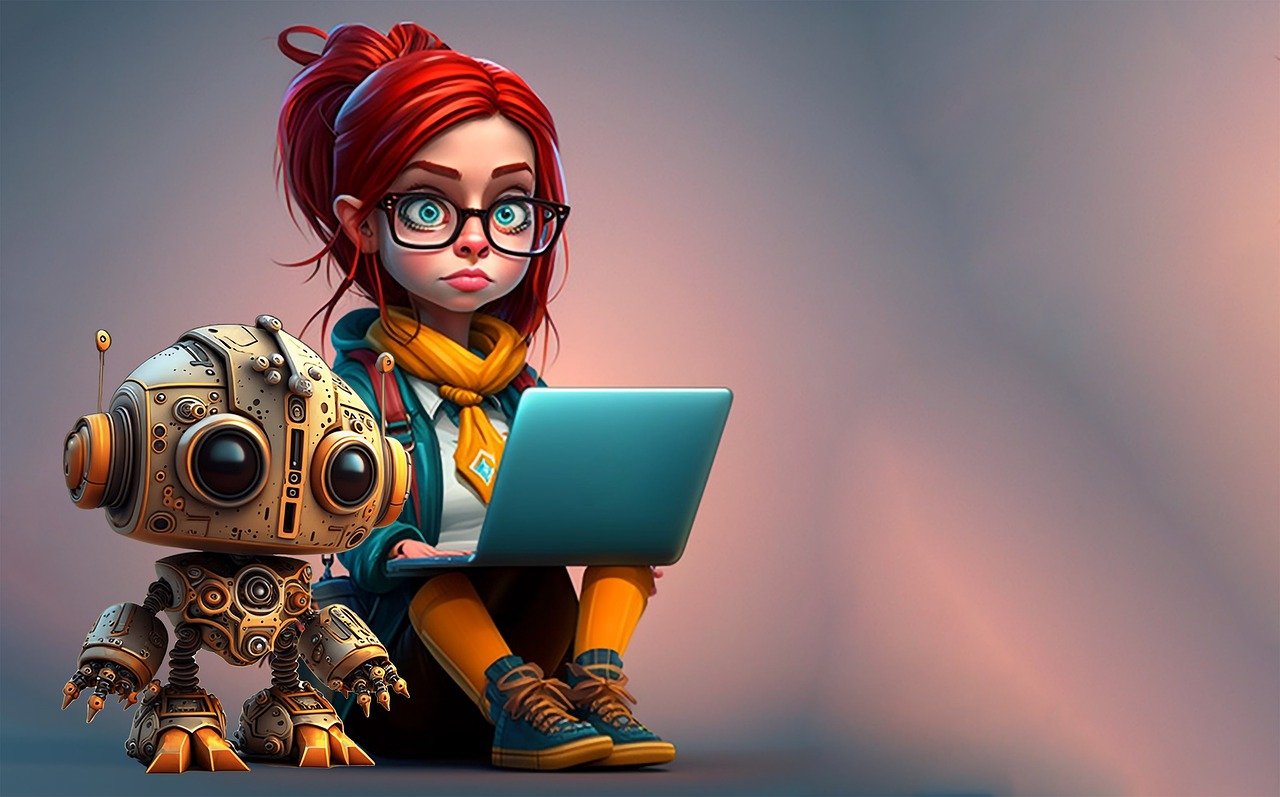Imagine a world where computers can read our minds and predict our every move. Where they can instantly understand and respond to our emotions, making human-computer interaction seamless and intuitive. This may sound like the stuff of science fiction, but the reality is that the future of computing is approaching faster than we can imagine. In just a decade from now, computers are poised to reach levels of intelligence and capability that will revolutionize the way we live, work, and communicate. From advanced artificial intelligence and machine learning to quantum computing and wearable technology, the possibilities for the future of computers are truly mind-boggling. So, how good will computers be in 2030? Let’s take a closer look at what lies ahead in this exhilarating race towards technological advancement.
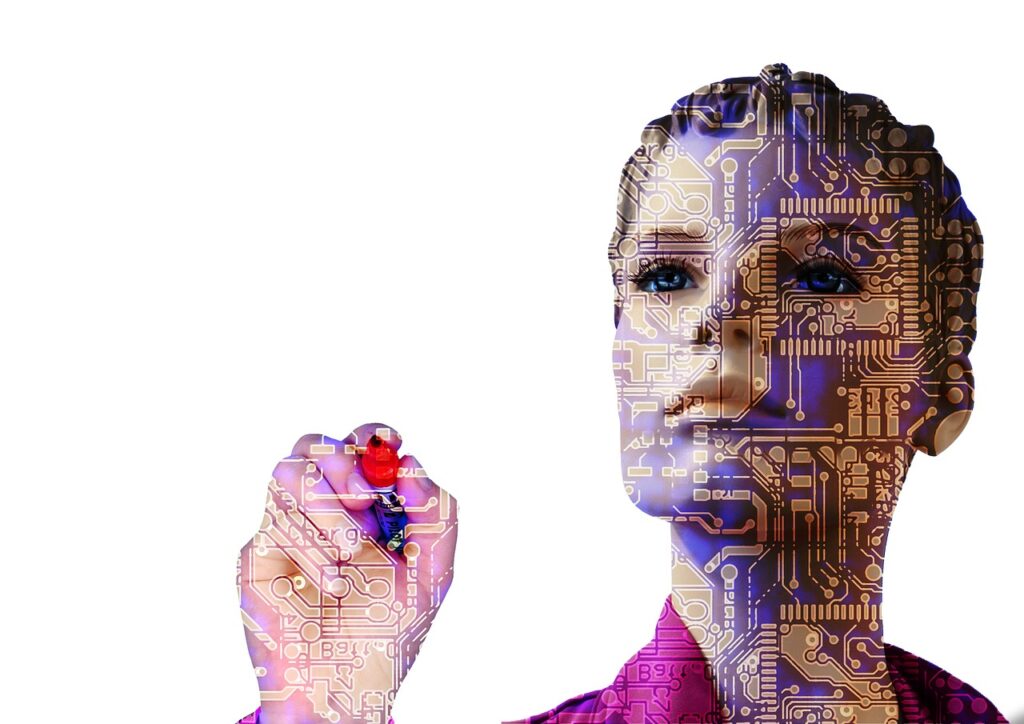
This image is property of pixabay.com.
Hardware Development
With the continuous advancement of technology, the hardware development of computers is expected to reach new heights by 2030. One significant aspect of this progress is the improvement in processing power. Computers will become faster and more efficient, allowing for seamless multitasking, quick data processing, and enhanced user experiences. This development will revolutionize various industries, such as finance, healthcare, and entertainment, by enabling complex simulations, data analysis, and real-time interactions.
Another exciting area of hardware development is quantum computing. By harnessing the principles of quantum mechanics, computers will be able to perform calculations at an unprecedented speed. Quantum computers have the potential to solve complex problems that are currently intractable for classical computers. This advancement will have a profound impact on fields like cryptography, optimization, and drug discovery, opening up new avenues for innovation and scientific breakthroughs.
Further advancements in hardware will also lead to enhanced memory storage capabilities. By 2030, computers will have larger storage capacities and faster access speeds, enabling users to store and retrieve vast amounts of data quickly and efficiently. This development will greatly benefit industries that require massive data storage and processing, such as artificial intelligence, genomics, and cloud-based services.
Artificial Intelligence
By 2030, computers will exhibit significant progress in the field of artificial intelligence (AI). One notable advancement will be the enhanced learning abilities of AI systems. These systems will be able to learn from vast amounts of data, continuously improving their performance and adaptability. This development will have implications across various domains, from personalized recommendations in e-commerce to accurate disease diagnostics in healthcare.
Computers in 2030 will also possess a greater understanding of human language. Natural language processing algorithms will enable computers to comprehend and generate human-like text, transforming the interaction between humans and machines. Voice assistants, chatbots, and translation services will become more sophisticated, enabling seamless communication and information exchange across different languages and cultures.
Moreover, AI systems will demonstrate improved decision-making capabilities. By effectively analyzing complex data sets and generating insights, computers will assist in making informed decisions in a wide range of industries. Whether it’s optimizing logistics, predicting market trends, or assisting in medical diagnoses, computers will provide valuable support in decision-making processes, leading to greater efficiency and accuracy.
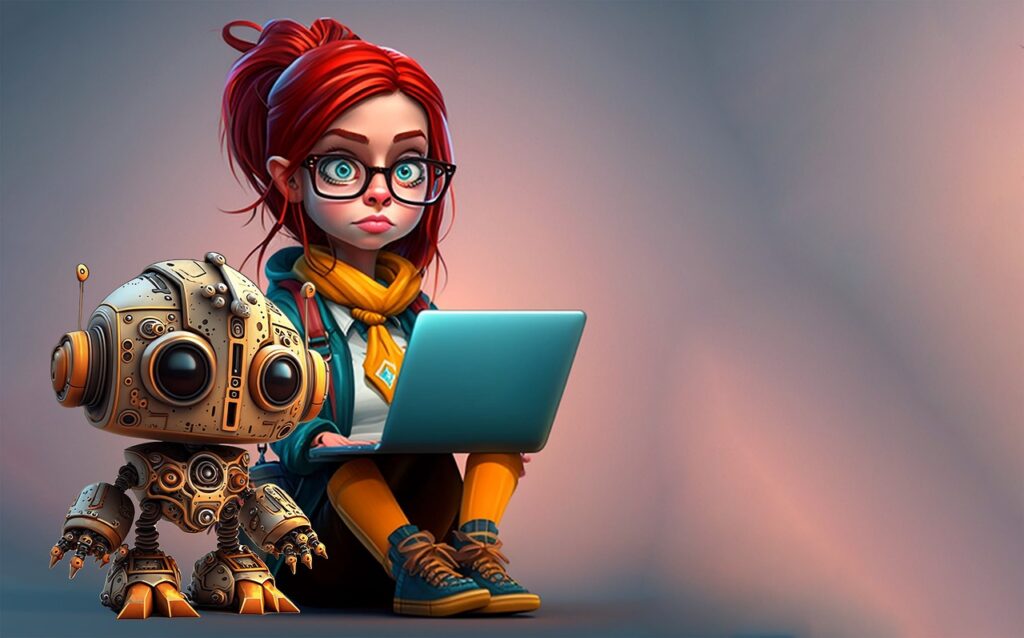
This image is property of pixabay.com.
Virtual and Augmented Reality
Virtual and augmented reality (VR/AR) will undergo substantial advancements by 2030, providing even more immersive experiences for users. Through VR technology, computers will transport users to highly realistic virtual environments, enabling exploration, training, and simulations in various fields, such as gaming, education, and design. Users will have the ability to interact with virtual objects and environments in ways that were previously unimaginable.
Furthermore, computers will enhance visuals and sensory feedback in VR/AR experiences. High-resolution displays, improved graphics processing units, and advanced haptic feedback will make the virtual world feel even more realistic and engaging. Users will be able to perceive depth, texture, and even temperature, enhancing the overall immersion and making virtual experiences feel increasingly lifelike.
In addition to individual experiences, computers will enable enhanced collaboration in VR/AR environments. Multiple users from different locations will be able to meet virtually, work on shared projects, and collaborate in real time. This development will revolutionize remote work, education, and teamwork, breaking geographical barriers and fostering innovative ways of collaboration.
Internet of Things
The Internet of Things (IoT) will experience exponential growth by 2030, driven by the increasing connectivity of devices and the proliferation of smart cities and infrastructure. Computers will enable seamless communication and coordination between a wide range of devices, such as smart home appliances, wearables, autonomous vehicles, and industrial sensors. This interconnected network of devices will transform various aspects of our lives, from increased convenience and efficiency to improved sustainability and safety.
Smart cities, equipped with advanced IoT technologies, will optimize urban infrastructure and enhance the quality of life for residents. Traffic management systems will dynamically adjust traffic signals to minimize congestion, waste management systems will optimize collection routes, and energy grids will intelligently distribute resources based on demand. These advancements will result in reduced resource consumption, improved urban planning, and enhanced environmental sustainability.
Additionally, computers will facilitate advanced data analysis in the IoT landscape. The constant generation of data from connected devices will provide valuable insights for various industries. From predictive maintenance in manufacturing to personalized healthcare monitoring, computers will utilize advanced algorithms to transform raw data into actionable information, leading to improved efficiency, optimized processes, and better decision-making.
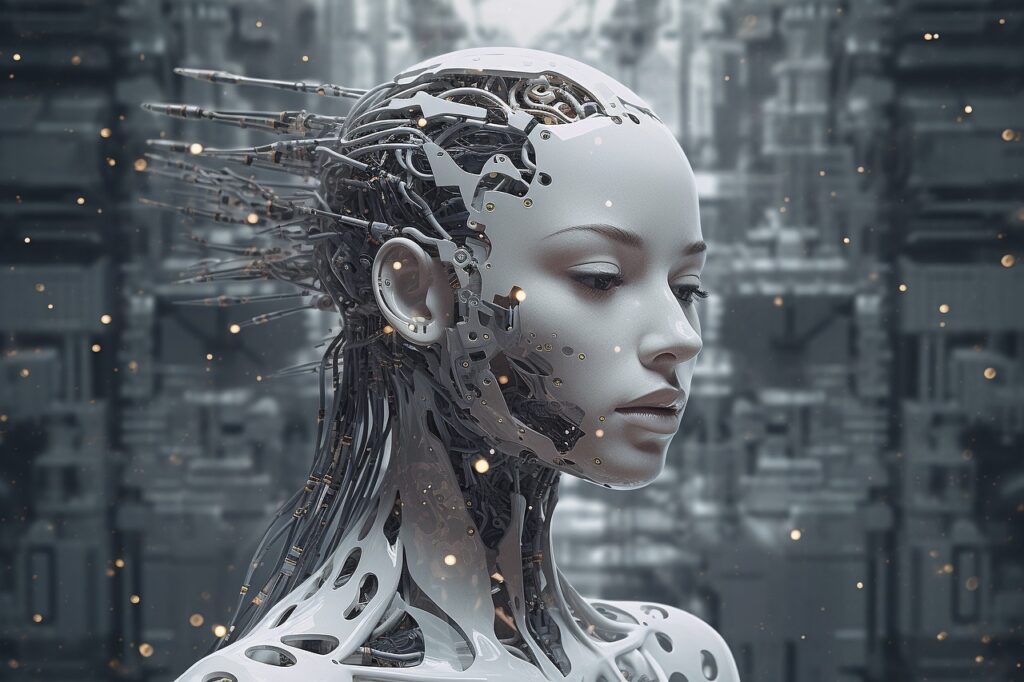
This image is property of pixabay.com.
Healthcare Applications
Computers will revolutionize the healthcare industry by 2030, enabling precise diagnostics, personalized medicine, and improved patient care. With advancements in machine learning and data analysis, computers will aid in accurate disease diagnosis, analyzing patient data and medical imaging with remarkable accuracy. This development will lead to earlier detection of diseases, personalized treatment plans, and potentially life-saving interventions.
Furthermore, computers will enable personalized medicine by leveraging genomic data and advanced algorithms. By analyzing an individual’s genetic makeup, computers will identify specific genetic markers, predicting susceptibility to certain diseases and tailoring treatment plans accordingly. This personalized approach will lead to more effective treatments, minimizing side effects and increasing positive outcomes.
In terms of patient care, computers will improve communication and coordination between healthcare providers, enhancing the efficiency and accuracy of medical procedures. From electronic health records and digital prescriptions to telemedicine and remote patient monitoring, computers will enable seamless information exchange, minimizing errors and ensuring timely interventions. This development will result in improved patient outcomes, reduced healthcare costs, and increased accessibility to quality healthcare.
Autonomous Systems
By 2030, computers will drive the widespread adoption of autonomous systems, transforming transportation, delivery systems, and daily life. One prominent example is self-driving vehicles. Computers will power autonomous cars that navigate roads with unprecedented precision and safety. These vehicles will reduce traffic congestion, lower the number of accidents caused by human error, and enable efficient transportation, especially in urban areas.
Drones and delivery systems will also see significant advancements, driven by computer technology. Delivery drones will facilitate faster and more efficient package delivery, especially in remote and challenging terrains. Additionally, drones will have applications in surveillance, disaster response, and crop management, providing valuable data and insights for various industries.
Robotic assistance will become increasingly common in daily life, as computers drive the development of sophisticated robotic systems capable of performing a wide range of tasks. From household chores to industrial automation, robots will assist humans in various capacities, increasing efficiency, and productivity. This advancement will lead to job transformation, allowing humans to focus on more complex and creative endeavors while computers handle mundane and repetitive tasks.
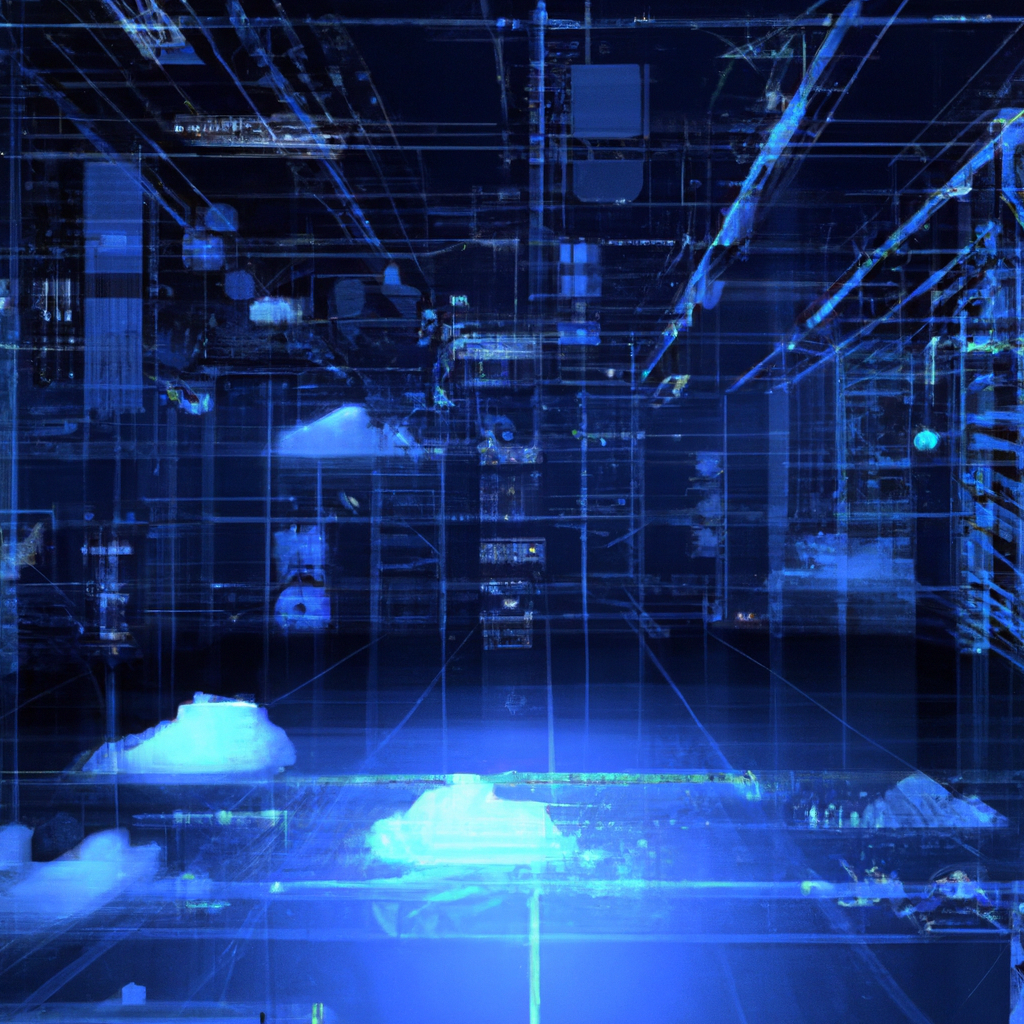
Cybersecurity
The increasing reliance on computers in every aspect of life necessitates advancements in cybersecurity by 2030. Computers will play a critical role in advanced threat detection, utilizing artificial intelligence to identify and mitigate potential cyber threats. Machine learning algorithms will continuously analyze network traffic, system logs, and user behaviors to detect anomalies and potential security breaches, ensuring robust protection against cyber attacks.
Moreover, secure data encryption will become even more crucial to protect sensitive information. Computers will develop advanced encryption algorithms and protocols to safeguard data during storage, transmission, and processing. This development will bolster data privacy, prevent unauthorized access, and mitigate potential risks associated with data breaches.
The ethical use of AI will also receive increased attention in terms of cybersecurity. Computers will prioritize the development of AI systems that are transparent, explainable, and accountable. Regulations and standards will be established to ensure the responsible deployment of AI, minimizing the potential for biased decision-making, algorithm manipulation, or discriminatory practices. This ethical approach to AI will enhance trust in computer systems and promote a safer digital ecosystem.
Energy Efficiency
With a growing concern for environmental sustainability, computers will prioritize energy efficiency by 2030. Reduced power consumption will be a key goal, driving innovations in hardware and software design. Computers will focus on optimizing energy usage, reducing unnecessary computations, and implementing power-saving mechanisms without compromising on performance. This development will contribute to significant energy savings and a smaller carbon footprint.
Furthermore, computers will drive the development of optimized computing infrastructure. Data centers, often large consumers of energy, will be designed with energy-efficient technologies, such as advanced cooling systems and renewable energy integration. By minimizing energy waste and maximizing resource utilization, computers will ensure that computing infrastructure becomes more sustainable and environmentally friendly.
The concept of green computing will gain prominence, emphasizing the importance of adopting eco-friendly practices in the design, manufacturing, and disposal of computer hardware. From using recycled materials to implementing sustainable production methods, computers will prioritize minimizing the environmental impact throughout the lifecycle of computing devices. This sustainable approach will be a significant step towards creating a greener and more sustainable future.

Education and Research
Computers will play a crucial role in education and research by 2030, facilitating enhanced learning tools, efficient data analysis, and enabling scientific breakthroughs. With the development of advanced virtual and augmented reality technologies, computers will revolutionize the way students learn. Immersive educational experiences will enable interactive simulations, virtual field trips, and real-time collaborative projects, enhancing student engagement and understanding of complex concepts.
Efficient data analysis will be empowered by computers, enabling researchers to extract valuable insights from vast datasets. Machine learning algorithms will assist in pattern recognition, data mining, and predictive analysis, accelerating the pace of scientific discoveries. Whether it’s exploring new materials, deciphering genetic codes, or unraveling the mysteries of the universe, computers will drive scientific breakthroughs in a wide range of fields.
Furthermore, computers will provide researchers and students with access to vast repositories of knowledge and facilitate seamless collaboration. Online platforms and cloud-based services will enable the sharing of research findings, resources, and experimental data, fostering a global community of researchers. Real-time collaboration and efficient data exchange will accelerate the progress of scientific research, leading to new discoveries and innovations.
Ethical Considerations
The rapid advancement of computers brings forth various ethical considerations that need to be addressed by 2030. One significant concern is the potential impact on unemployment and the job market. As computers automate more tasks and AI systems become increasingly sophisticated, there is a risk of job displacement. It is crucial to proactively address this concern by investing in retraining programs, fostering entrepreneurship, and creating new job opportunities in emerging fields.
Privacy and surveillance are other ethical considerations that need to be carefully navigated. As computers collect and process vast amounts of personal data, ensuring the privacy and security of individuals becomes paramount. Striking a balance between data-driven advancements and protecting privacy rights will require robust regulations, transparent practices, and effective enforcement mechanisms. Computers must prioritize user privacy while still enabling the benefits that data-driven technologies can bring.
The ethical use of AI is another critical consideration. As AI systems become more capable and autonomous, it is essential to define ethical frameworks and guidelines to govern their behavior. Ensuring transparency, avoiding bias, and being accountable for the decisions made by AI systems are vital aspects of responsible AI deployment. By prioritizing ethical considerations in the development and use of AI, computers will promote fairness, inclusivity, and social good.
In conclusion, computers in 2030 will represent a significant leap forward in terms of hardware development, artificial intelligence, virtual and augmented reality, the Internet of Things, healthcare applications, autonomous systems, cybersecurity, energy efficiency, education and research, and ethical considerations. These advancements will shape our society in profound ways, enabling unprecedented capabilities, transforming industries, and paving the way for a more connected, efficient, and socially responsible future.
